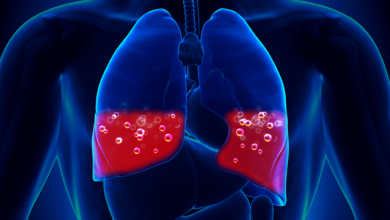Search results
Author(s):
Catherine R Weinberg
,
Amier Ahmad
,
Boyangzi Li
,
et al
Added:
3 years ago
Dyspnea, palpitations, edema, and fatigue are common symptoms during pregnancy. For women with congenital heart disease (CHD), it may be difficult to discern whether symptoms are due to normal pregnancy or underlying cardiac disease. Although most women with CHD tend to experience successful pregnancies, morbidity and mortality are significantly increased with more complex CHD lesions.1–6 Women…
View more
Author(s):
Jagmeet P Singh
Added:
3 years ago
Cardiac resynchronization therapy (CRT) has achieved widespread approval as a safe and efficient therapeutic strategy for medically refractory congestive heart failure (CHF). The standard indications for CRT include patients with advanced heart failure and evidence of systolic dysfunction (ejection fraction [EF] ≤35%), conduction tissue disease (QRS duration ≥120ms), and marked cardiac symptoms …
View more
Author(s):
Howard C Herrmann
Added:
3 years ago
Mitral regurgitation (MR) is most often caused by degenerative disease of the leaflets or develops functionally as a consequence of left ventricular disease (see Figure 1). Patients with severe MR have dyspnea on exertion, fatigue, and, when associated with left ventricular dysfunction or pulmonary hypertension, reduced survival.1 Therefore, surgery to repair or replace the mitral valve is…
View more
Author(s):
Somsupha Kanjanauthai
,
Kabir Bhasin
,
Luigi Pirelli
,
et al
Added:
3 years ago
Transcatheter aortic valve replacement (TAVR) has been established as a therapeutic option for patients with severe symptomatic aortic stenosis who are considered to be of intermediate, high or prohibitive surgical risk.1–5 As a result of favorable TAVR outcomes and substantial improvements in transcatheter heart valve (THV) technologies and implantation techniques, the feasibility of broadening…
View more
Author(s):
Melody Hermel
,
Rebecca Duffy
,
Alexander Orfanos
,
et al
Added:
3 years ago
One of the fundamental principles of evidence-based medicine is that clinical care should be based on data derived from appropriately designed trials, registries, and observational data from patients. The best available evidence is then used to develop guidelines for clinical care, assess quality, measure performance, and improve patient outcomes. The highest level of evidence in clinical…
View more
Author(s):
Henry M Spotnitz
,
T Alexander Quinn
Added:
3 years ago
Surgeons have contributed studies of the pathophysiology and treatment of arrhythmias in experimental animals and patients during thoracotomy. This research has involved epicardial1 and endocardial2 pacemakers and implantable cardioverter–defibrillators (ICDs).3 Surgeons helped to define the mechanisms and ablation methods for supraventricular arrhythmias (including Wolff-Parkinson-White syndrome…
View more
Author(s):
Shamai A Grossman
Added:
3 years ago
Introduction
Congestive heart failure (CHF) is an imbalance in pump function in which the heart fails to maintain the circulation of blood adequately. The most severe manifestation of CHF, pulmonary edema, develops when this imbalance causes an increase in lung fluid secondary to leakage from pulmonary capillaries into the interstitium and alveoli of the lung.
CHF can be categorized as forward…
View more
Author(s):
Peter A McCullough
Added:
3 years ago
Heart failure (HF) is a common condition and carries a considerable age-dependent all-cause mortality.1 As a leading cause of hospitalization in adults, ~50% of patients discharged with a diagnosis of HF are readmitted within six months, and the one-year mortality rate is 20% after an initial diagnosis is established. There is currently a chronic HF epidemic with a rapidly expanding prevalence…
View more
Author(s):
Myung H Park
Added:
3 years ago
Author(s):
Soraya M Samii
,
Gerald V Naccarelli
Added:
3 years ago
Patients presenting with implantable cardioverter–defibrillator (ICD) shocks are increasingly common, primarily due to the expansion of ICD-placement indications. The discomfort and pain associated with ICD shocks often result in immediate medical attention. This occurs in emergency rooms and as acute visits in doctor’s offices. With the advances in remote monitoring, these alerts can also occur…
View more












 « First
« First